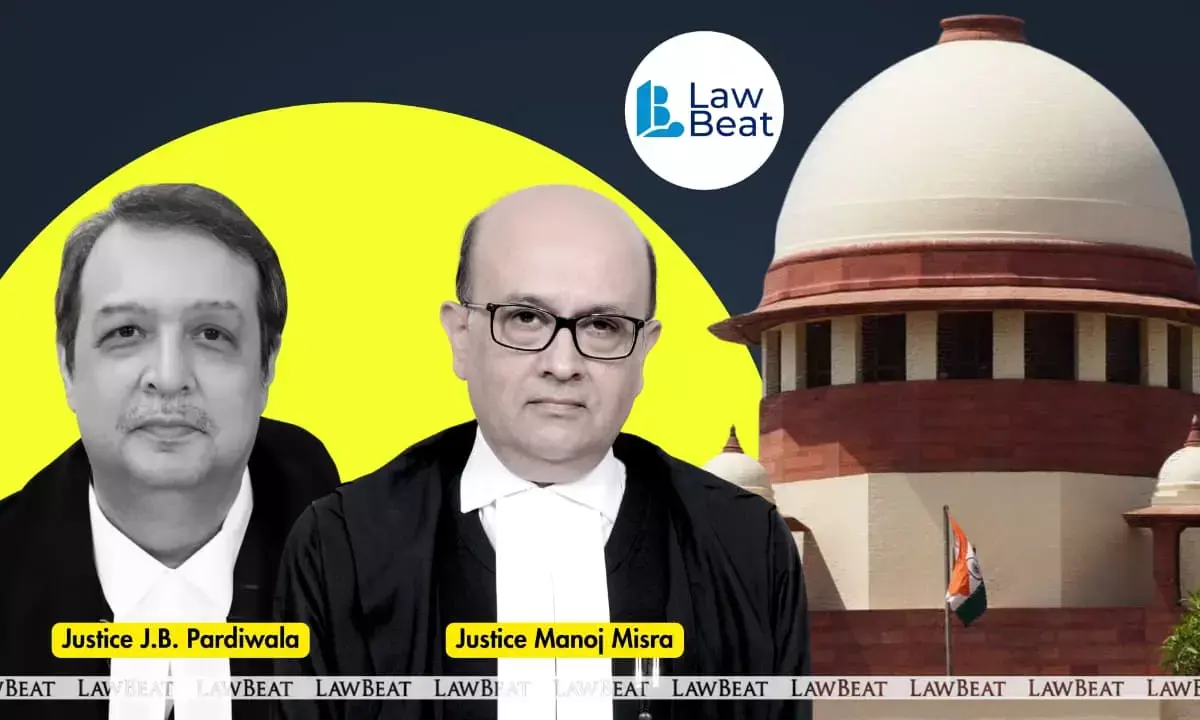Mutation entries don’t confer ownership, serve only fiscal purpose: SC

The Supreme Court clarifies that mutation entry doesn't prove ownership, title requires valid legal decree
The Supreme Court has reiterated that mutation entries in revenue records do not by themselves confer ownership rights over property, holding that title can be established only through lawful succession, a valid will, or a decree passed by a competent court.
A bench of Justices J B Pardiwala and Manoj Misra said that mutation entries only serve a fiscal purpose, that is, to realise tax from the person whose name is recorded in the revenue records.
Court made the observation while restoring a civil suit filed by Karam Singh in a decades-old land dispute, setting aside the Punjab and Haryana High Court’s decision, which had dismissed the suit as barred by limitation.
The dispute related to land originally owned by Ronak Singh, who died intestate in 1924, leaving behind his widow Kartar Kaur. A series of litigations followed over inheritance. Kartar Kaur was ultimately declared owner by a decree passed in 1975. After her death in 1983, the respondents claimed ownership on the basis of an alleged will dated December 15, 1976, purportedly executed by her.
The appellants, descendants of Ronak Singh’s sisters Nikki and Chinki, contested the will, claiming rights through natural succession. Mutation was sanctioned in their favour in 1984, but disputes continued for over three decades until 2017. They then filed a fresh suit in 2019 seeking declaration of ownership, possession, and damages.
The defendants sought rejection of the plaint under Order 7 Rule 11(d) of the Code of Civil Procedure (CPC), contending that the plaintiffs had knowledge of the will since 1983 and that the suit was therefore time-barred. They also invoked Order 2 Rule 2 CPC, citing an earlier suit filed in 2012.
While the trial court dismissed the objection, holding that limitation was a mixed question of law and fact, the High Court reversed the order in 2022, finding the suit filed after “36 years” and hence barred by time.
Allowing the appeal, the Supreme Court held that the High Court had erred in rejecting the plaint at the threshold without considering the plaint averments in full. “Whether the suit is barred by any law is to be determined solely on the basis of averments made in the plaint,” the court said.
The bench further noted that since mutation proceedings concluded only in 2017 and the suit was filed within three years thereafter, it could not be considered ex facie barred by limitation. Court also observed that because the suit sought possession based on title, Article 65 of the Limitation Act, prescribing a 12-year limitation period, would apply.
Reiterating that mutation proceedings are “summary in nature” and do not decide ownership, the court said issues such as adverse possession or validity of the will can only be resolved during trial.
Setting aside the High Court’s orders, the Supreme Court restored the trial court’s decision rejecting the defendants’ plea to dismiss the plaint and directed that the matter be decided on merits.
It clarified that its observations were confined to determining whether the plaint was liable to rejection and should not be treated as findings on the merits of the title dispute.
Case Title: Karam Singh Vs Amarjit Singh & Ors
Judgment Date: October 15, 2025
Bench: Justices J B Pardiwala and Manoj Misra
